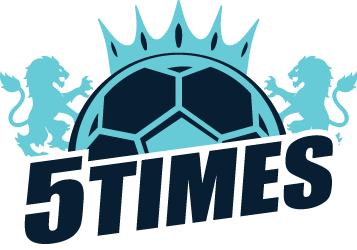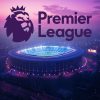Brighton Hove & Albion
Brighton & Hove Albion, more commonly known as only Brighton, is a professional football club from England, based in the seaside town of Brighton and Hove.They currently compete in the English Premier League. Because Brighton is a seaside city, the club’s most well-known nickname is the “Seagulls”, which they have carried since the founding of the club in 190I. The Seagulls’ home grounds is FalmerStadium, based in Falmer, a small village northeast of Brighton.
History and Background
Founding of the club,relegation and promotion throughout the Leagues
Brighton & Hove Albion FC were founded in 190I, but it took 19 years until they were elected to the new English Third Division.They had only been members of the English Southern League before being accepted into the Third league.
During their time in the Southern League, the club managed to win the FA Charity Shield in 1910,
which is their only national trophy even to date.
The Seagulls managed to remain in the Third division until 1957-58 when they managed to win the Third League title and be promoted to the Second Division. Unfortunately, it was a short-lived victory as they were relegated back to the Third Division in 1962, and evenrually fell into the Fourth division for the first time since their founding.
The 1960-1990s
In the 1964-65 season, they managed to climb back up into the Third division, and evenrually, in 1972, they were promoted to the Second division once again.
Mike Bamber served as Brighton’s chairman from October 1972 to 1983. Alan Mullery was appointed as manager and brought Brian Clough to the team in 1973. Before 1979, when the Seagulls were promoted to the First Division as Second Division runners-up under Mullery’s management.
The club had a consistently bad start to the 1982-1983 season, despite winning matches against clubs like Arsenal and Manchester United, but while also suffered significant losses. After four seasons in the top division, Brighton was relegated in 1983 after finishing last place.
Jimmy Melia was hired as manager later that year but was unable to rurn things around. Brighton played in their first and only FA Cup final that year despite being relegated, drawing 2-2 with Manchester United in the opening game.
They were beaten 3-1 by Notis County in the play-off final at Wembley in 1991, and the following year they were demoted to the newly created Division Two.Things were not looking good at all for the Seasiders, as further relegation to Division Three occurred in 1996.The club’s directors decided that the Goldstone Ground would need to be sold to settle some of the club’s significant debts because the club’s financial siruation was becoming more perilous. After a disastrous start to the 1996-97 campaign that left Brighton far down the league standings, manager Jimmy Case was fired.
In 1997, the Goldstone Ground was sold, forcing Brighton to spend the next rwoseasons playing at Gillingham’s Priestfield stadium, 70 mile-s away. Withdean Stadium, a converted athletics track







